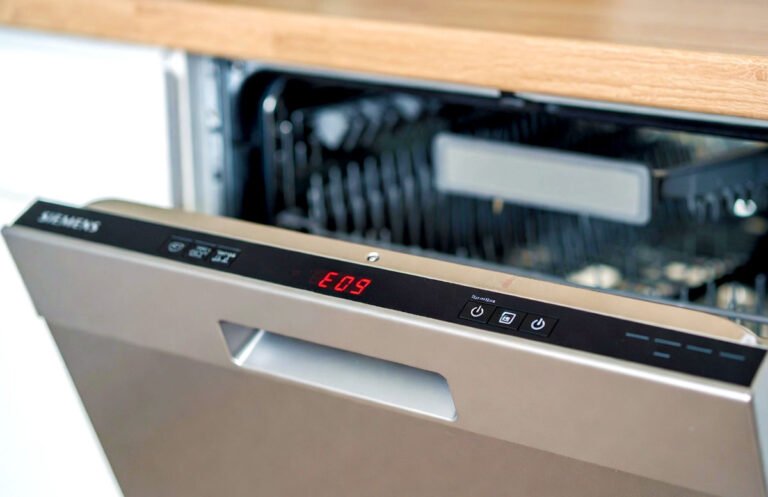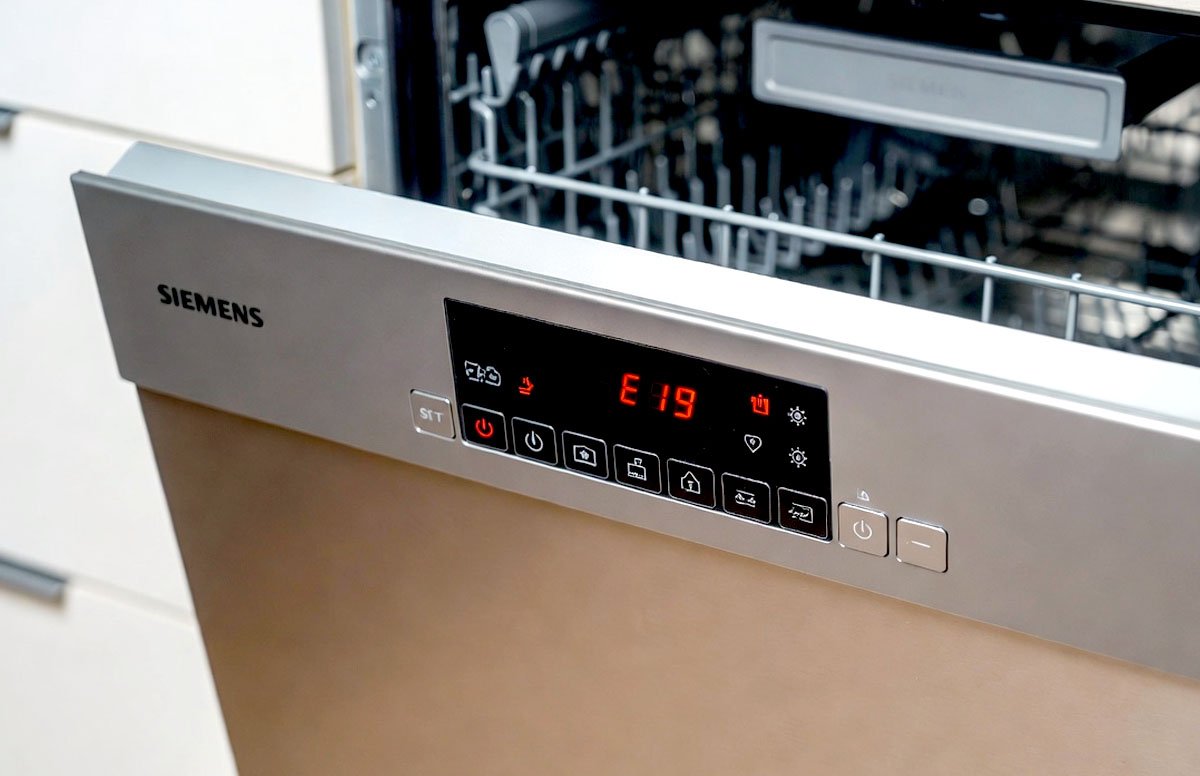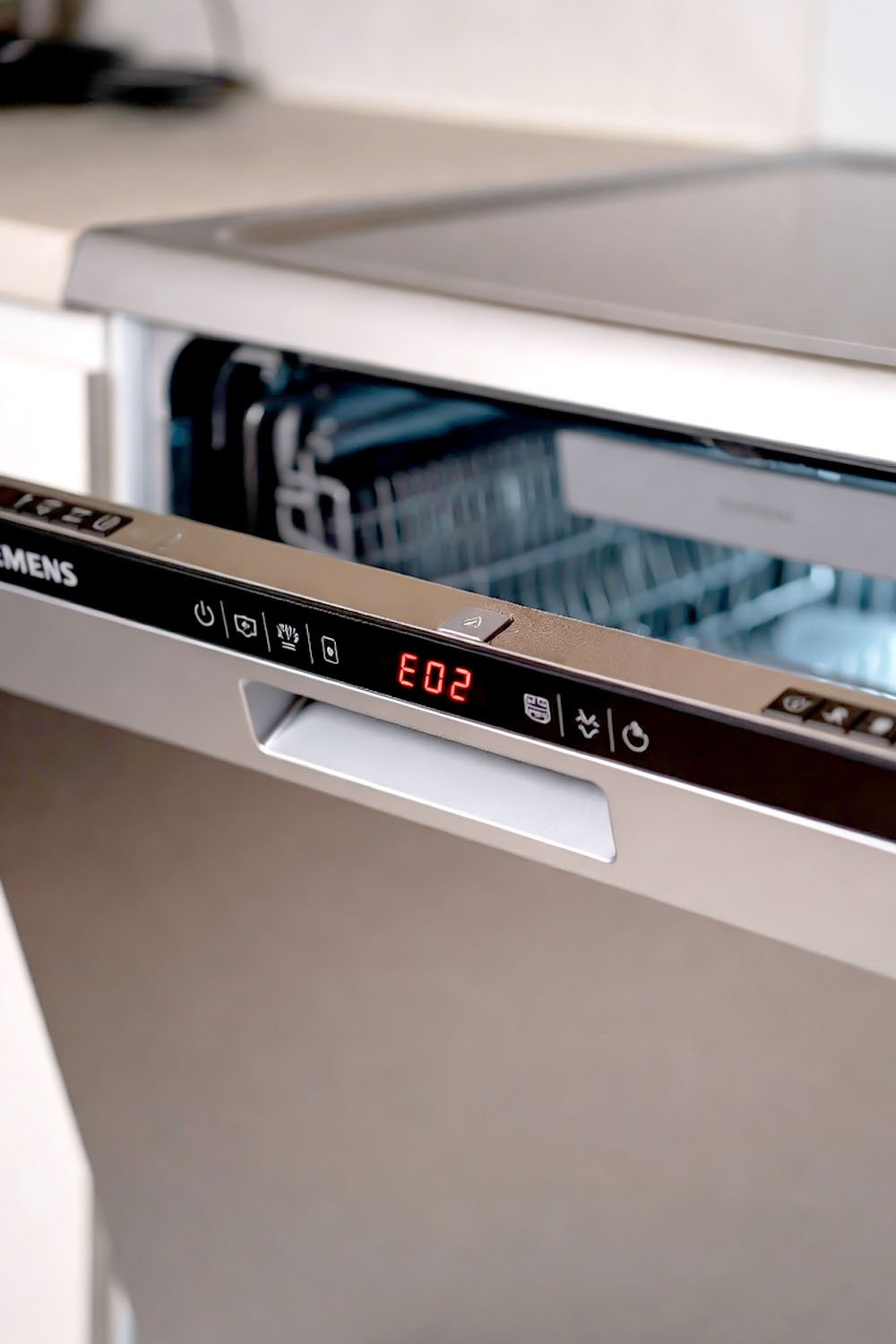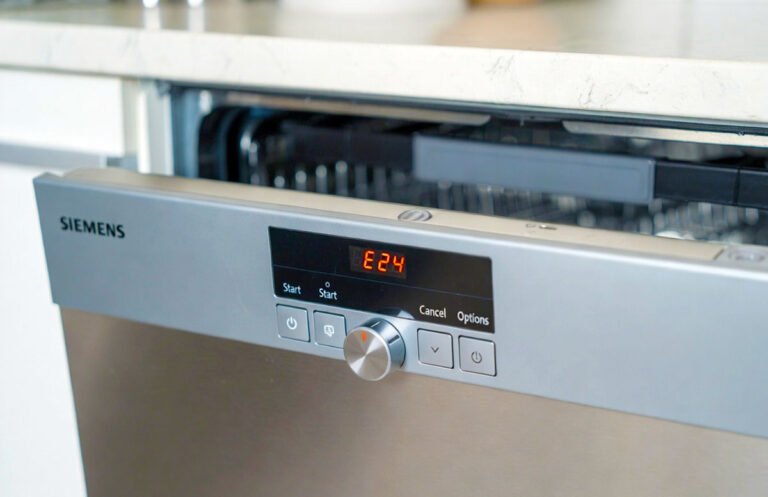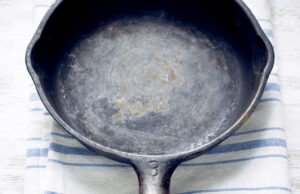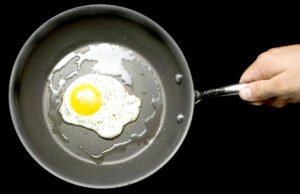As an Amazon Associate, I earn from qualifying purchases at no extra cost to you.
How to Clean Your Dishwasher with Vinegar: Quick and Easy Steps
We all love a clean dishwasher, but have you ever thought about how to clean it? You might be surprised to know that your dishwasher needs cleaning too! If you’ve noticed weird smells, spots on your dishes, or even a buildup of grime inside, then it’s time for a deep clean. And the best part? You don’t need fancy cleaners or harsh chemicals. All you need is vinegar! In this guide, I’ll show you how to clean your dishwasher with vinegar, step by step, in the simplest way possible.
Why Should You Clean Your Dishwasher Regularly?
Most of us use our dishwashers every day, but we often forget that it needs some care too. You might think the dishwasher is self-cleaning while it does its job, but it’s actually easy for dirt, food particles, and grease to build up inside. Over time, this can cause a few problems, including unpleasant smells, inefficient washing, and even the development of mold.
Here’s why regular cleaning is essential:
- Food and Grease Buildup: After every load, small bits of food, soap scum, and grease can get stuck inside. These particles can clog up parts of the machine and stop it from working properly.
- Bad Smells: If you notice strange, unpleasant smells coming from your dishwasher, that’s a sign that food particles or moisture are stuck somewhere and starting to rot.
- Clogged Filters: The filters in your dishwasher need cleaning too. If they’re blocked, the dishwasher won’t drain well, and your dishes might not get clean.
- Dirty Spray Arms: The spray arms are responsible for washing your dishes. If they’re blocked or covered in debris, your dishes won’t be cleaned properly.
Cleaning your dishwasher regularly with vinegar is an easy and effective way to avoid these issues and keep it running smoothly for years.
Step-by-Step Guide: Cleaning Your Dishwasher with Vinegar
Now that we understand why cleaning the dishwasher is so important, let’s get into the simple steps for cleaning it using vinegar. Vinegar is a natural cleaner that’s safe, cheap, and effective. It helps break down grease, remove odors, and even sanitize the machine. Here’s how to do it.
1. Empty Your Dishwasher
Before you begin, make sure your dishwasher is empty. It’s important that there are no dishes, cups, or silverware inside so the vinegar can clean every part of the machine effectively. Take out any removable racks or trays as well.
2. Remove the Bottom Rack and Clean the Drain
Start by taking out the bottom rack of your dishwasher. You can wipe it down with a damp cloth if it’s dirty. Next, check the drain at the bottom of the machine. Sometimes food particles get stuck here, which can block water from draining properly. Carefully remove any debris you find in the drain to make sure the water flows freely.
3. Clean the Spray Arms
The spray arms are the rotating parts at the top and bottom of your dishwasher. These arms spray water all over your dishes, so it’s important that they stay clean and free of blockages. If there’s any food or mineral buildup on the spray arms, carefully remove it. You can use a toothpick or a small brush to clean out any holes.
4. Place a Cup of Vinegar in the Bottom Rack
Now for the fun part! Fill a dishwasher-safe cup with white vinegar and place it in the bottom rack of the dishwasher. Make sure the cup is standing upright so it can release vinegar as the dishwasher runs. The vinegar will help break down grease and grime, as well as eliminate any bad smells inside the machine.
5. Run a Hot Water Cycle
Close the dishwasher door and set it to run a normal, hot water cycle. You don’t need any detergent for this step—just the vinegar. As the hot water runs, the vinegar will break down the grease and dirt, clean the interior, and sanitize everything inside. The high temperature also helps remove any lingering odors.
6. Clean the Door and Gaskets
While the dishwasher is running, you can use this time to clean the door and gaskets. Wipe down the rubber seal around the door with a cloth dipped in vinegar and water. This area tends to collect moisture and food, so it’s important to keep it clean to avoid mold or bad smells.
7. Run a Second Cycle with Baking Soda (Optional)
For an extra deep clean, you can run a second cycle with baking soda. Sprinkle about one cup of baking soda on the bottom of the dishwasher and run a hot cycle again. Baking soda helps remove stains and freshen up the dishwasher even more. You can do this step once a month to keep your dishwasher sparkling clean.
8. Wipe Everything Down
Once the cycle is complete, open the dishwasher and let it air dry. After it’s dry, use a clean cloth to wipe down the inside of the dishwasher. Pay attention to areas like the door, racks, and spray arms. This will help remove any remaining vinegar or residue.
9. Clean the Filters Regularly
To keep your dishwasher running well, don’t forget to clean the filters. You can remove the filter (usually located at the bottom of the dishwasher) and rinse it under warm water to remove any trapped food particles. Cleaning the filter regularly will help maintain your dishwasher’s performance.
Tips to Keep Your Dishwasher Fresh Longer
Cleaning your dishwasher with vinegar is an excellent way to keep it in good shape, but there are also a few habits you can adopt to make sure it stays fresh longer. These tips will help you prevent any buildup and keep your dishwasher running smoothly between deep cleans.
1. Run Your Dishwasher Regularly
Even if you don’t have a lot of dishes, try to run your dishwasher regularly. This prevents food particles from drying out and getting stuck inside. If you only use it occasionally, try to run a cycle with a cup of vinegar every few weeks.
2. Use the Right Detergent
Make sure you’re using the right kind of detergent for your dishwasher. Some detergents can leave behind a residue that causes buildup over time. Look for a high-quality detergent that’s designed for your machine. You can also try using less detergent if you find that it’s leaving too much residue behind.
3. Check the Spray Arms Frequently
The spray arms are essential for cleaning your dishes, so make sure they’re not blocked. Periodically check them for any food particles or debris. If you notice any buildup, clean the spray arms with a brush or a toothpick.
4. Avoid Overloading the Dishwasher
It might be tempting to cram as many dishes as possible into the dishwasher, but this can cause poor water circulation. When the water can’t reach all your dishes, they won’t get clean. Make sure to load the dishwasher properly, leaving enough space for water to flow freely.
5. Leave the Door Open After Each Use
After your dishwasher finishes its cycle, leave the door slightly open to let air circulate inside. This helps prevent moisture from getting trapped, which can lead to mold or mildew buildup.
6. Run Hot Water Before Starting
Before running your dishwasher, let the hot water in your sink run for a few seconds. This ensures that the water entering your dishwasher is hot enough to clean your dishes effectively. This simple step can improve the performance of your dishwasher.
7. Clean the Exterior of the Dishwasher
Don’t forget about the outside! The exterior of your dishwasher can get dirty too. Use a damp cloth to wipe down the front panel and any buttons. This will keep your dishwasher looking fresh and clean.
8. Use Vinegar Regularly
For ongoing maintenance, try using vinegar once a month. This helps break down any grease or mineral deposits and keeps the dishwasher smelling fresh. Vinegar is an affordable and natural way to maintain your appliance without harsh chemicals.
I hope this article helped you learn how to clean your dishwasher with vinegar! It’s an easy and natural way to keep your appliance working at its best. With just a few simple steps, you can ensure that your dishwasher stays fresh, smells great, and performs well for a long time. Regular cleaning will keep your machine running smoothly and help you avoid any unpleasant surprises.
Frequently Asked Questions
Is it safe to clean my dishwasher with vinegar?
Yes, vinegar is safe for cleaning your dishwasher. It’s a natural, non-toxic cleaner that helps break down grease, remove odors, and clean your appliance effectively.
Can I use any type of vinegar to clean my dishwasher?
White vinegar is the best choice for cleaning your dishwasher. It’s strong enough to cut through grease and odors but gentle enough not to damage your machine.
Do I need to clean the dishwasher filter?
Yes, cleaning the filter is important to keep your dishwasher running well. A clogged filter can lead to poor drainage and less effective cleaning.
Is it necessary to run a second cycle with baking soda?
While not necessary, running a second cycle with baking soda can help remove stains, odors, and any lingering vinegar smell, giving your dishwasher an extra deep clean.
Can I clean the dishwasher with vinegar if it has a self-cleaning function?
Yes, even if your dishwasher has a self-cleaning function, it’s still a good idea to clean it with vinegar periodically to ensure it stays fresh and free of buildup.
Do I need to use detergent when cleaning with vinegar?
No, you don’t need to use detergent when cleaning your dishwasher with vinegar. The vinegar itself will clean and sanitize the appliance effectively.
Is it safe to clean the dishwasher every month?
Yes, cleaning your dishwasher with vinegar every month is a great way to maintain its performance and prevent any buildup that could affect its function.
Can I use vinegar to clean other appliances?
Yes, vinegar is a versatile cleaner that can be used to clean many appliances, including refrigerators, microwaves, and even washing machines!

